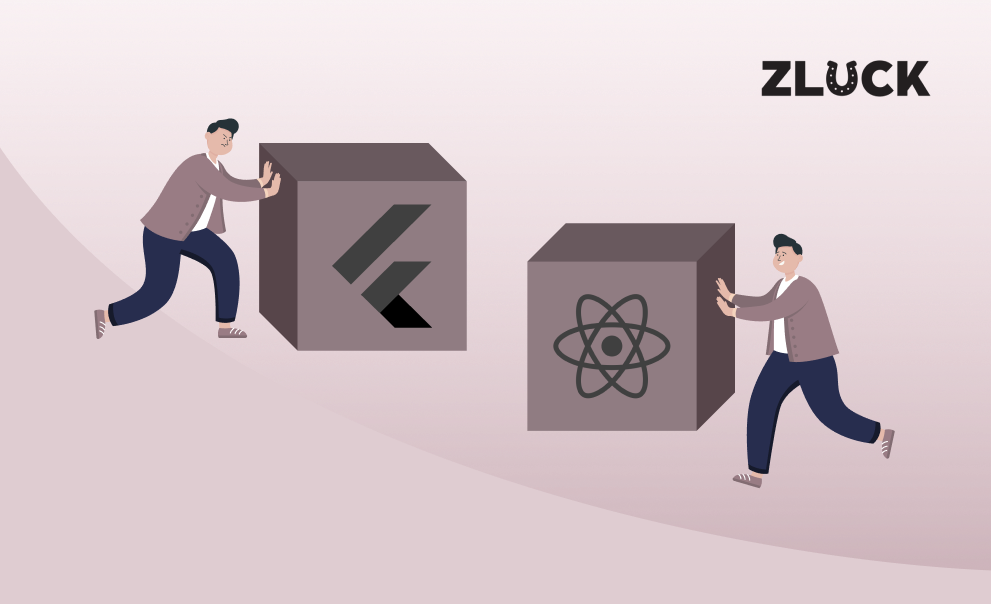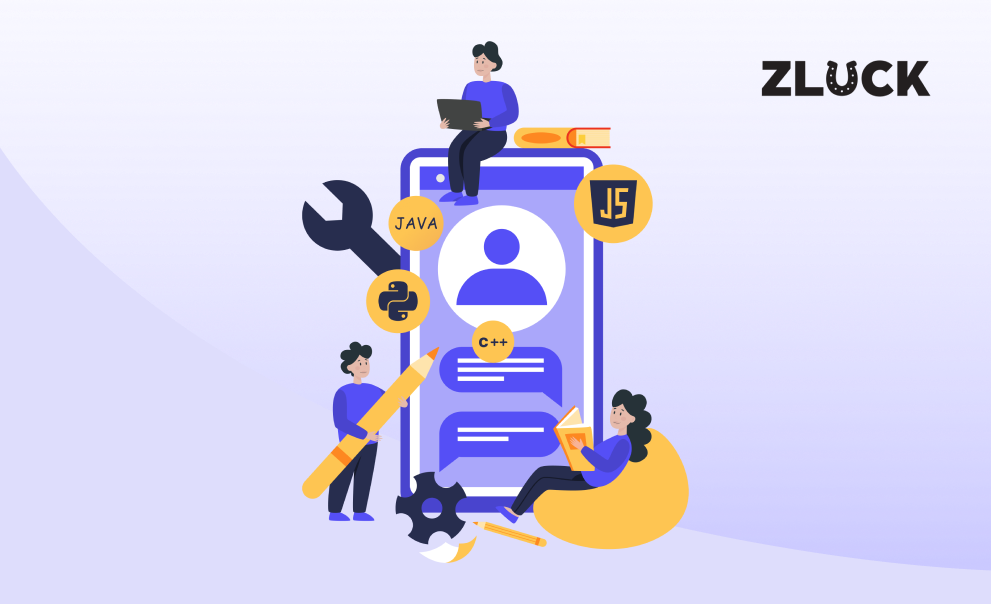In this article, we will discuss two frameworks that have elegantly maintained and made it into the top ranks for a good period now, which are React Native and Flutter. Considering investing a huge amount of skill, time, and money in mobile app development, these days companies require a faster way of making an app.
So moving ahead on our point of cross-platform frameworks, many of the developers have tried solving this issue but gained a limited amount of support and solution before eventually being waved off as just another framework.
- React Native: A formation of Facebook which was made open-source in 2015. Progressively, it got some extraordinary help from the local area. Generally based on ReactJS yet with a profoundly helpful variable of native code added, it makes the experience and progresses somewhat less web-situated.
- Flutter: It was disclosed in 2017 by Google and each mobile application developer had a similar inquiry, will it be better than React Native? Flutter has been in the development and testing stage since 2015.
Let’s get deep into a detailed comparison between React Native and Flutter.
The following is the clarification of the distinctions in light of various fields between React Native and Flutter:
Programming Language
- React Native: Uses JavaScript which means it is easy for web developers to shift quickly to React Native for mobile app development against Dart.
- Flutter: Undenied the fact that flutter is a whole new language and that Dart wasn’t used a lot, it’s precisely based on Java because of conceptual support and help. Additionally, it has some simple-to-follow documentation to make you have a great start.
Installation
- React Native: Can be placed using Node Package Manager (NPM) while using macOS you are required with HomeBrew package manager as well. So for developers having NPM installed the process is really easy whereas on the other hand developers would need to learn the ins and outs of NPM.
- Flutter: Supports dual download straight from GitHub for a specific platform. Also in the case of macOS after downloading the files are added as a PATH variable only.
Setup and Project Configuration
- React Native: Not much is thought into making the documentation for a developer to begin. All things considered, it’s accepted that the arrangement is as of now done that’s why react native will purpose in making the first application by executing the command
$ npx react-native init MyTestApp$ cd MyProject
- Flutter: It has everything small things documented from IDE Setup, and is platform-specific setup to a CLI tool called flutter doctor.
$ flutter create MyProject$ cd MyProject
UI Component and Development API
- React Native: Depends more on third-party libraries to acquire most of the native modules.
- Flutter: Rich set of components comprising each native module required which excludes the essentials of a third-party library. Also, Flutter is full of WIDGETS.
Developer Productivity
- React Native: All IDEs support JavaScript so there won’t ever be an issue concerning utilization as per the designer which gives an enormous chance to foster the best applications in which they are involved.
- Flutter: Dart isn’t being a standard language as far as use, there is a particular absence of help in numerous IDEs and content tools.
Community Support
- React Native: Being the structure that was delivered first out of the two, it is inevitable to get a lot of help and it unquestionably did starting around 2015 as it is unequivocally kept up with by the designer on GitHub and from a lot more networks across the world.
- Flutter: Flutter also is on a fast ascent as far as local area support however at that point again it will require some measure of investment for assets to be made accessible which will ultimately empower designers to tackle normal issues.
Testing Support
- React Native: Again heavily depends on third-party tools for integration as well as UI testing.
- Flutter: Flutter has a specialty to test apps at 3 levels which are unit test, widget test, and integration test.
Build & Release Automation Support
- React Native: Documentation for automatic deployment of apps from any platform is not available so practically you are on your own to search and deploy your app on the Play Store or App Store.
- Flutter: It has deployment support through CLI and also documentation for the deployment process can be done shortly and simply.
DevOps and CI/CD Support
- React Native: This does not contain any official documentation while setup CI/CD.
- Flutter: This has a different way of CI and testing which you can view over the process path. However, you set up CI/CD using Flutter CLI very easily and smoothly.
Conclusion:
So these are a portion of the discoveries that ran over and sure there are a lot more out. However, at last, all that matters is what you as a designer like by the day’s end.
Zluck Solutions has a team of experienced React Native as well as Flutter developers. Contact us today to build your App with the latest technologies around.














